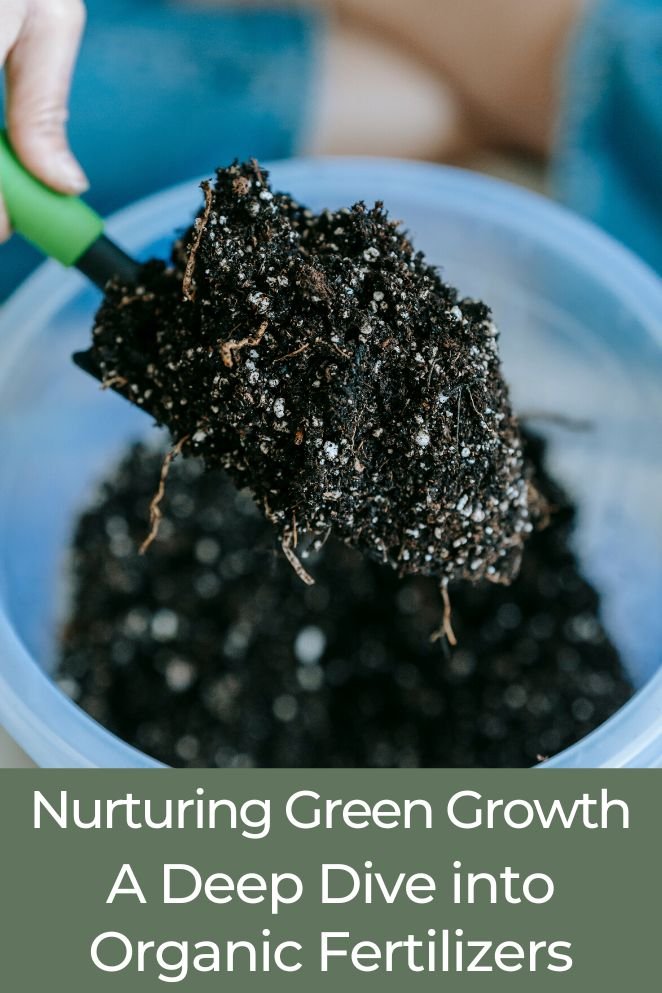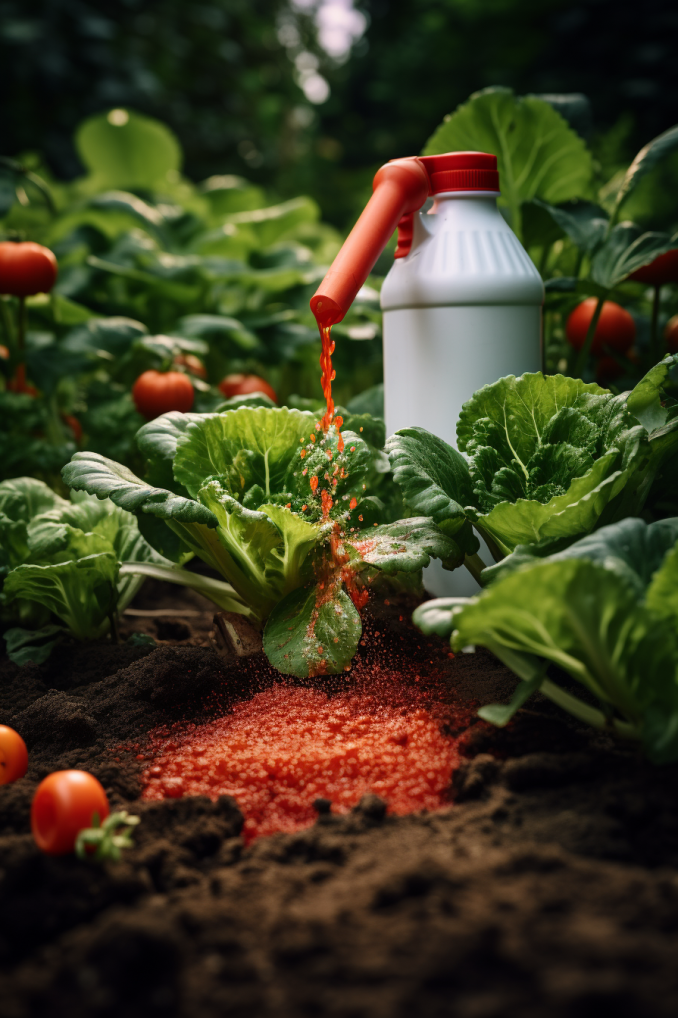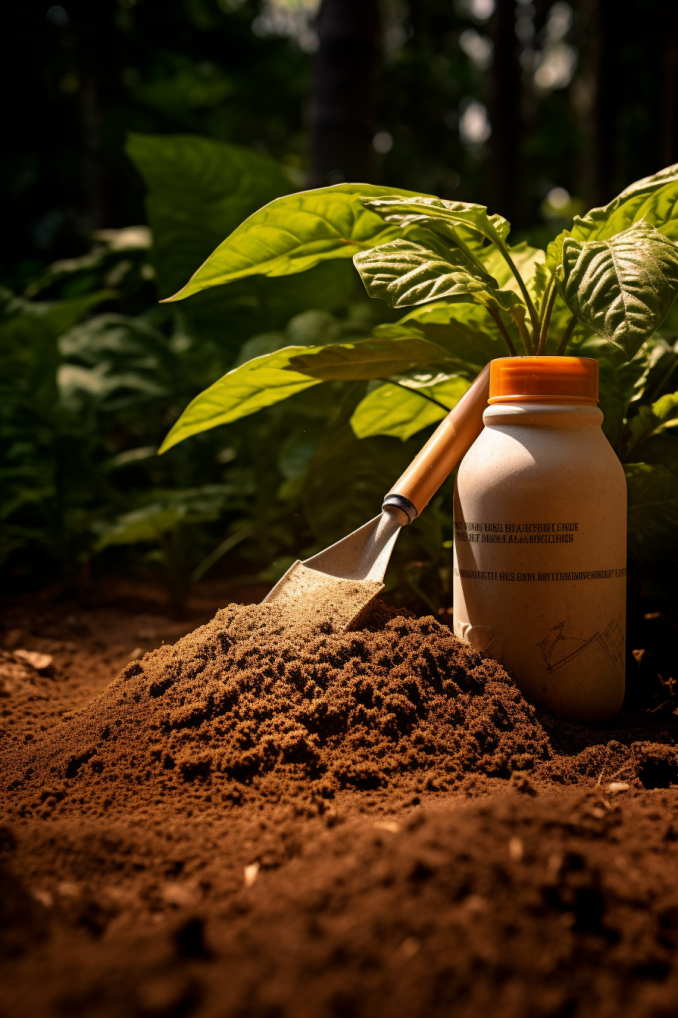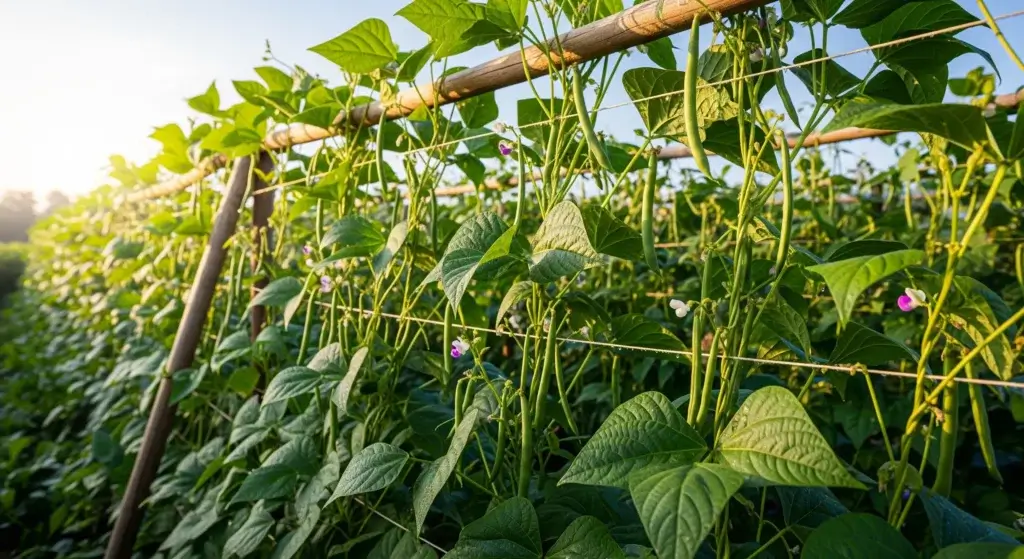
In the dynamic realm of gardening and agriculture, the prominence of organic fertilizers is unmistakable.
Their popularity is not just a passing trend but a reflection of a growing commitment to sustainable and eco-friendly cultivation practices.
Join us on a journey through the green landscapes as we delve into the origins, composition, and compelling advantages that make organic fertilizers the preferred choice for conscientious cultivators.
What are Organic Fertilizers?
Exploring the realm of organic fertilizers requires a closer examination of their origins and distinctive characteristics.
Organic fertilizers, fundamentally, derive from natural sources—plants, animals, and minerals—setting them apart from their synthetic counterparts.
What distinguishes them is their robust composition of organic matter, delivering a nourishing, gradual, and consistent release of nutrients to your plants.
This natural composition not only nurtures your plants but also contributes to the overall well-being of your garden’s ecosystem.
As organic fertilizers decompose, they enhance the soil’s structure and fertility.
This process, in turn, promotes the proliferation of beneficial microorganisms, fostering a harmonious relationship between your plants and the earth beneath them.
- Read also: Aloe Plant Watering Care
- Read also: Corn Plant Watering

History of Organic Fertilizers
The rich history of organic fertilizers traces back to ancient agricultural practices, where the wisdom of cultivating the land in harmony with nature was deeply ingrained.
Long before the advent of chemical fertilizers that now fill modern shelves, farmers and gardeners looked to the natural world for solutions to enhance soil fertility and nourish their crops.
Manure, a byproduct of livestock, became a cornerstone in nurturing soil health.
Its benefits extended beyond mere waste disposal, as farmers recognized its nutrient-rich composition—primarily nitrogen, phosphorus, and potassium—which worked wonders in fortifying the soil.
Compost, another ancient marvel, took center stage as a sustainable and locally sourced fertilizer.
By harnessing the transformative power of decomposition, early agriculturists created a nutrient-dense blend of organic matter.
This not only replenished soil fertility but also contributed to the overall structure and water retention capacity of the earth.
Bone meal, ground from animal bones, entered the scene as a potent source of phosphorus and calcium.
Recognizing its efficacy, farmers incorporated bone meal into their agricultural arsenal, ensuring robust plant growth and improved root development.
The contemporary organic fertilizer movement not only honors historical practices but also adapts these timeless approaches to meet modern agricultural demands.
It represents a thoughtful decision to prioritize soil health, crop well-being, and overall planetary sustainability.
In a world where history shapes the present, the utilization of organic fertilizers stands as a testament to the enduring legacy of individuals who cultivated the land with a profound grasp of nature’s rhythms.
Advantages of Organic Fertilizers
As we delve into the world of organic fertilizers, it’s crucial to unravel what sets them apart.
Let’s explore the array of advantages that make these natural wonders the preferred choice for cultivating a sustainable and thriving garden.
Slow release
One standout advantage of organic fertilizers is their methodical nutrient release.
Unlike their synthetic counterparts that deliver quick bursts, organic fertilizers release nutrients gradually.
This slow and sustained process ensures a balanced and prolonged nourishment for your plants, fostering steady growth without the risk of overstimulation.
Soil health
Organic fertilizers go beyond mere nutrient provision; they actively contribute to soil health.
Improving soil structure, enhancing water retention, and promoting microbial activity, these fertilizers work harmoniously with the soil ecosystem.
The result is a healthier and more resilient foundation for your plants, creating an environment conducive to robust growth.
Environmentally friendly
Embrace a greener approach and bid farewell to worries about chemical runoff.
Organic fertilizers prioritize environmentally friendly practices, minimizing the risk of water pollution and harm to non-target organisms.
This gentle approach not only nurtures your garden but also aligns with a broader commitment to sustainable and eco-conscious cultivation.
Long-term benefits
View the use of organic fertilizers as a wise investment in the long-term fertility of your soil.
Regular application contributes to the buildup of organic matter, enhancing the soil’s capacity to retain nutrients and support robust plant growth.
This dedication to soil health becomes a solid foundation for the future, ensuring the sustained productivity and vitality of your garden.

List of Organic Fertilizers
In the vast realm of organic fertilizers, the choices can be overwhelming.
To help you make informed decisions for your garden, here’s a handy list of organic fertilizers, each bringing its unique set of nutrients and benefits to your green haven.
Compost
Considered the gold standard of organic fertilizers, compost is a nutrient-rich blend of decomposed organic matter.
It not only enhances soil structure but also provides a balanced mix of essential nutrients, making it a cornerstone for sustainable and organic gardening practices.
Manure
Whether sourced from cows, chickens, or goats, manure is a time-tested organic fertilizer.
Packed with valuable nutrients, it enriches the soil and promotes healthy plant growth.
However, ensure proper composting or aging to avoid potential issues with pathogens.
Bone meal
An excellent source of phosphorus, bone meal is particularly beneficial for flowering plants.
It supports robust root development and enhances flower and fruit production, making it a valuable addition to your organic fertilizer toolkit.
Fish emulsion
For a boost of nitrogen, organic gardeners often turn to fish emulsion.
This liquid fertilizer, derived from fish by-products, provides a quick and readily available source of nitrogen, promoting lush, green foliage and overall plant vigor.
Seaweed and kelp
Unlock the potential of seaweed and kelp in organic fertilizers as they bring a wealth of micronutrients, trace elements, and growth-promoting hormones.
These additions not only nourish plants but also boost their resilience to environmental stresses, contributing significantly to overall plant health.
Wood ash
As a natural source of potassium, wood ash can benefit your garden.
However, use it sparingly to avoid soil alkalinity issues. It’s crucial to monitor the pH levels and adjust accordingly when incorporating wood ash into your organic fertilization routine.
Alfalfa meal
Enter alfalfa meal, a nutrient-dense fertilizer packed with nitrogen, phosphorus, and potassium.
Beyond these essential elements, it acts as a source of beneficial microbes, fostering improved soil health and nutrient availability.
Rock phosphate
Rock phosphate is a natural mineral fertilizer containing phosphorus, crucial for root development and flowering.
Its slow-release nature makes it an excellent choice for sustained nutrient availability.
Green manure
For a sustainable and eco-friendly choice, turn to green manure.
This involves planting specific crops like clover or legumes, which are later incorporated back into the soil.
The result is enhanced soil fertility, improved structure, and the addition of organic matter—a holistic approach to supporting your garden’s health.

Are Organic Fertilizers Safe?
Addressing safety concerns surrounding organic fertilizers is a common priority for gardeners and cultivators.
Seeking assurance about the impact of these fertilizers on humans, pets, and the environment is entirely natural.
The reassuring news is that, when used as directed, organic fertilizers pose minimal risks.
In stark contrast to synthetic fertilizers, which may harbor harsh chemicals, organic options are characterized by their gentleness.
Derived from natural sources like plants, animals, and minerals, the ingredients in organic fertilizers reduce the likelihood of adverse effects on the health of those who come into contact with them.
When applied according to recommended guidelines, organic fertilizers foster a harmonious coexistence with nature.
Their gradual release of nutrients contributes to the overall well-being of plants without causing harm to the surrounding environment.
This stands in sharp contrast to synthetic alternatives that may introduce harmful chemicals into the soil, posing risks to both the ecosystem and those who interact with the treated areas.
- Read also: Mint Plant Watering
- Read also: Snake Plant Care Indoors
Conclusion
As you provide your garden with the organic nourishment it deserves, you become a contributor to a larger story—one that embraces sustainability, tradition, and a harmonious connection with the environment.
Your gardening journey extends beyond the confines of your backyard, intertwining with a timeless fabric of responsible practices that benefit both your plants and the planet.
With each application of organic fertilizer, you play a crucial note in the gardening symphony, creating a melody that resonates with the spirit of nature.
FAQs
Yes, organic fertilizers may take a bit longer to show results, but their slow-release nature provides sustained nourishment, promoting overall plant health.
Absolutely! Composting kitchen scraps, collecting and using manure, and creating compost tea are simple ways to make effective organic fertilizers in your backyard.
Yes, certain organic fertilizers are tailored to the needs of specific plants. For example, acid-loving plants may benefit from coffee grounds or pine needle mulch. Always check the specific requirements of your plants before choosing a fertilizer.



